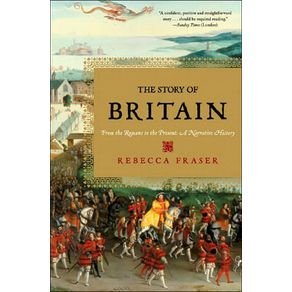Starred Review. This immense labor of patriotic love has already won widespread critical acclaim across the Atlantic for its fluid storytelling and evenhanded judgments. Its populism has nothing to do with, say, Howard Zinn's People's History of theUnited States. Fraser intends simply to "guide the average person through the confusing shoals of disputed facts," and many an average reader (and student) will warm to her self-consciously old-fashioned narration. Her vision is gently Blairite: sheconsiders the National Health Service to be one of modernity's great achievements and accuses Margaret Thatcher of a failure of sympathetic imagination, but she is resolutely hostile to the Old Left and generous in her appraisal of the monarchy. Daughter of Lady Antonia Fraser and heir to much of her mother's literary talent, she weaves together many of the distant moments that traditionally shaped the collective consciousness of the British, but which have been half-forgotten. Fraser celebrates a free-spirited resistance to tyranny, which she traces from the ancient chieftain Caractacus (who resisted Roman rule) through the bulldog bloody-mindedness of Winston Churchill, and gives broad latitude to myths that have dissipated in the glare ofempirical history. Resurrecting King Arthur and retelling the gloriously ironic tale of King Alfred burning a peasant woman's cakes as he hid from the Danish hordes Fraser stokes the embers of pride in a past from which the British themselves havebecome emotionally detached, and in which an American audience will find much that is compelling. B&w illus.



